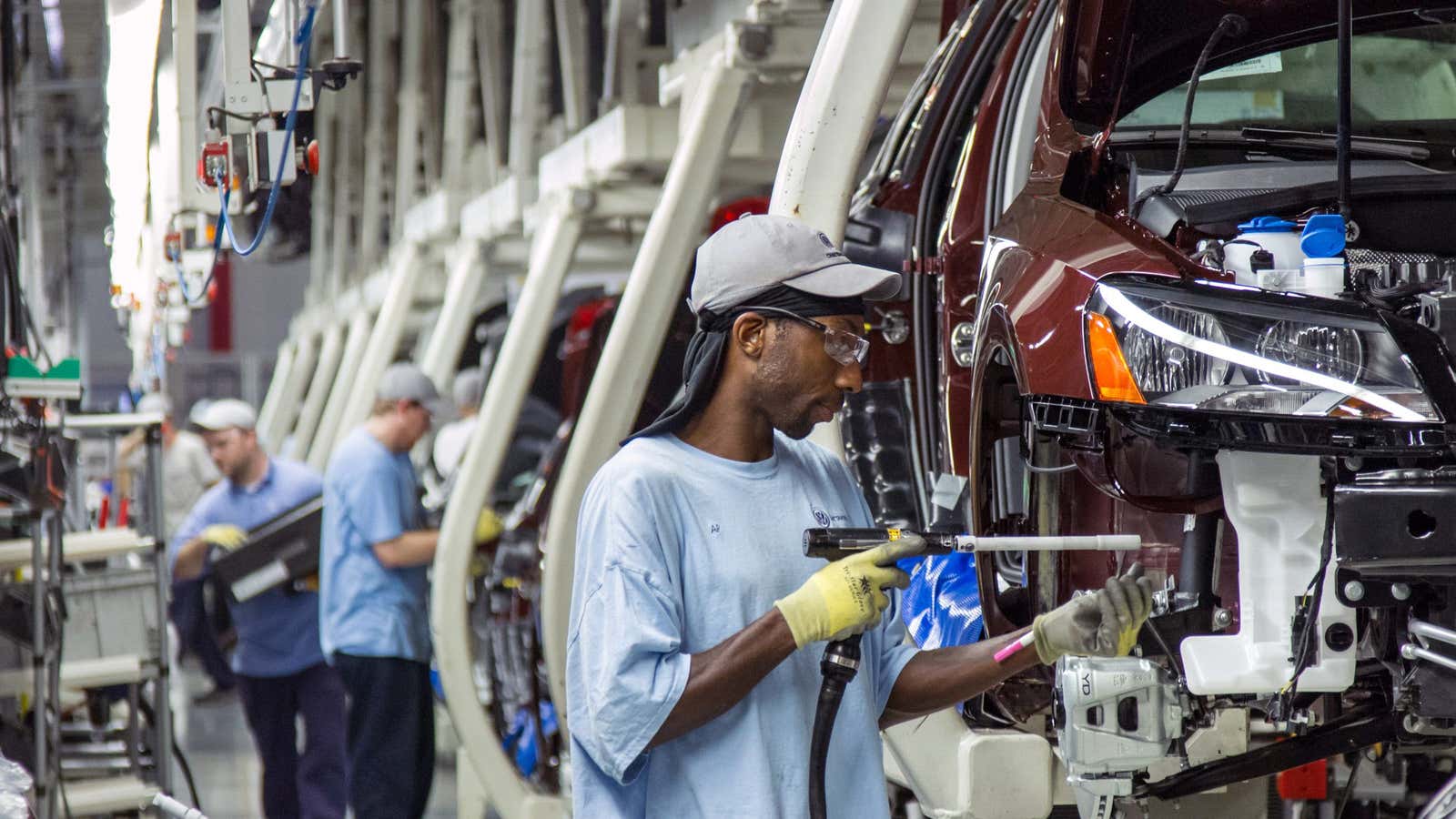Donald Trump is launching a defense of US steel and aluminum producers by imposing tariffs on imports of the raw metals from foreign producers.
The president said today that his administration will set tariffs of 25% and 10% for imported steel and aluminum respectively. He provided no other details on the plan, except that he expects to make it official next week.
The decision followed intense behind-the-scenes wrangling over the issue between different factions within the Trump White House, with advisers like National Economic Council chair Gary Cohn and Secretary of Defense James Mattis reportedly urging the president not to impose the new import taxes.
The president’s “America First” outlook apparently won out. “You’ll have protection for a long time in a while,” Trump said after a meeting with steel and aluminum executives who stand to benefit from the new rules. “You’ll have to regrow your industries, that’s all I’m asking.”
What he didn’t consider is that the proposed measures will actually undermine American job growth. That’s because American companies that make things out of steel represent a much broader sector of the economy than than the raw metal industries Trump is trying to shore up. Because of the tariffs, manufacturers of steel goods will have to pay higher prices for their raw materials.
American-made finished products could also become less competitive if the US trading partners impose their own tariffs in retaliation. Several countries, including China, Mexico, and EU members, have already signaled they would raise tariffs for US products in response.
As a result, US manufacturers are likely to produce less—and hire less—in the US. A similar policy rolled out by the George W. Bush administration in 2002 resulted in the loss of tens of thousands of jobs in the Rust Belt.
To get a sense of the difference in magnitude between steel makers and industrial steel consumers, consider the size of the auto industry’s labor force compared to that of the steel industry.
Completely unrelated industries, such as agriculture, would be affected as well. Members of Trump’s own party immediately questioned the wisdom of the move. “Every time you do this, you get a retaliation, and agriculture is the number one target,” Kansas sen. Pat Roberts told reporters. “This is terribly counterproductive for the ag economy.”
The tariffs, therefore, have the potential of hurting a lot more workers than they will help.
Correction: In an earlier version of this story, Defense Secretary James Mattis was incorrectly identified as Secretary of State.
